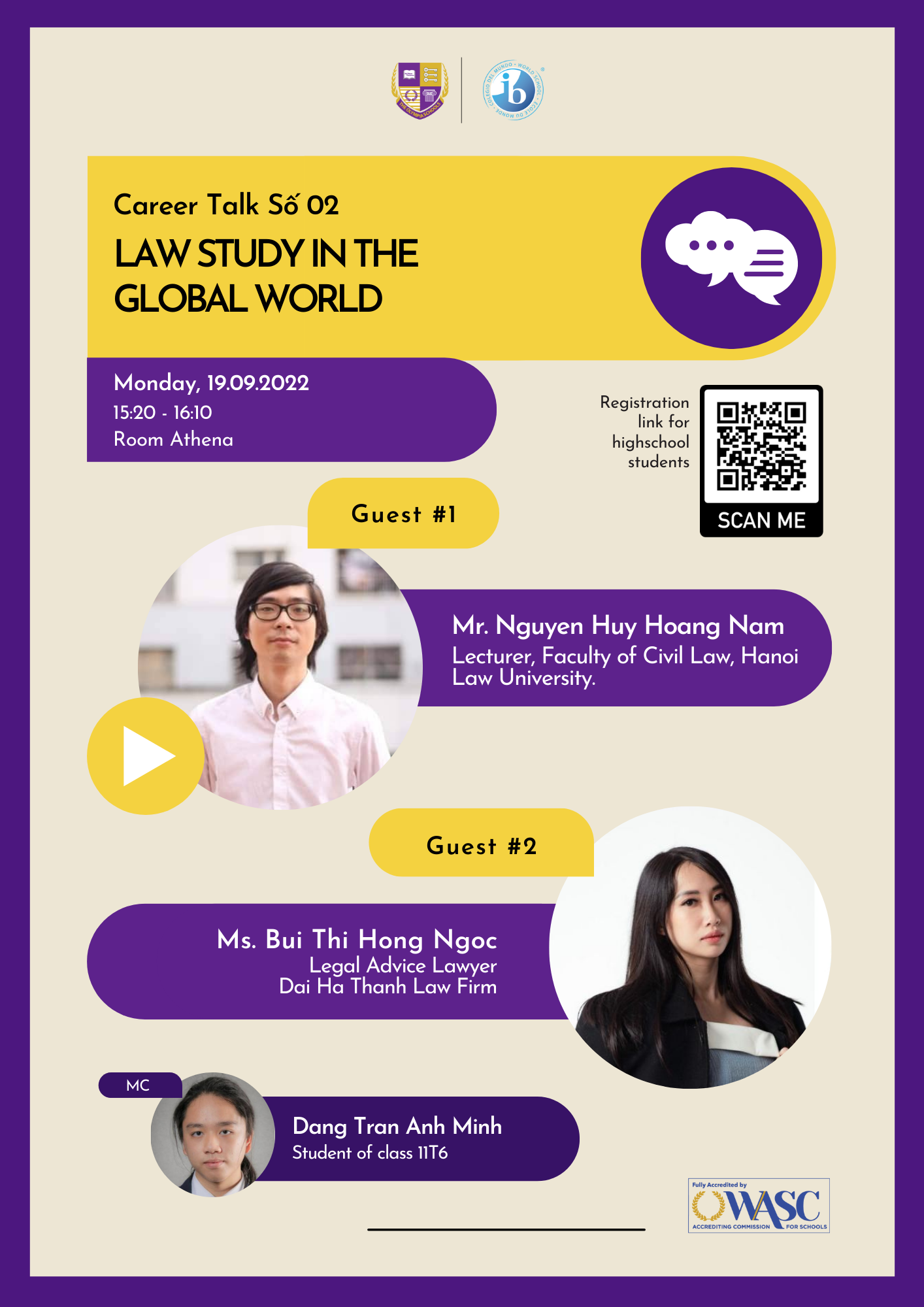
“Who am I in national identity” project: a trip to Vietnamese diversity under interdisciplinary model at Olympia
30 September, 2021
HInterdisciplinary model has become a unique method applied at Olympia Schools over recent years. This model has harvested many positive results. The project “Who am I in national identity” was conducted in Moc Chau in November 2020, presenting an opportunity for 11th graders to travel back time to explore a newer “Vietnamese identity” and take a giant leap in finding their identity.
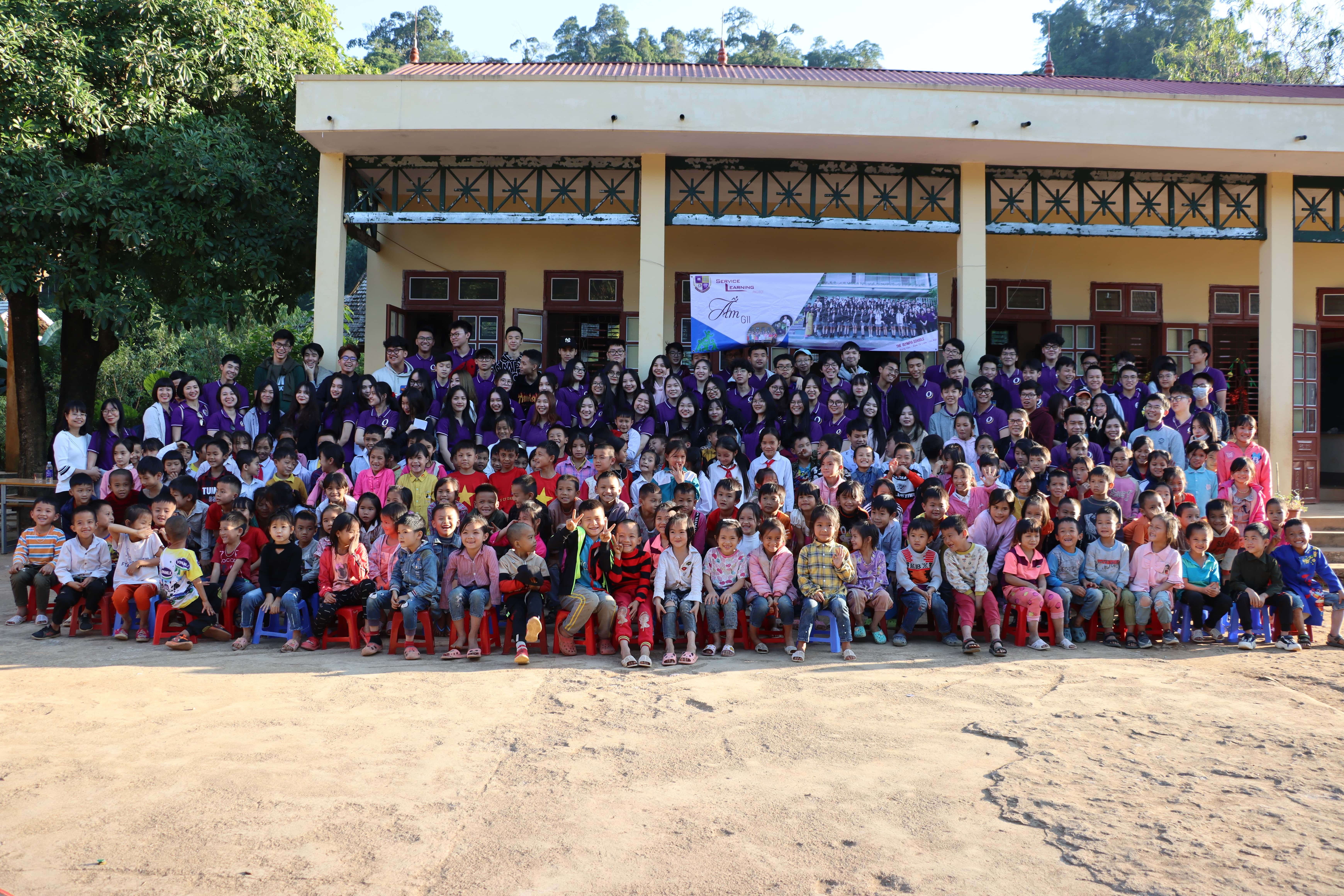
The journey to personal identity of each Olympian is put in a broader national perspective. Simply to say, they not only learn about themselves but where they belong to and which Vietnamese values are being nurtured inside them. Personal identity should not be detached from national identity but national identity is the collective of multiple generations of Vietnamese people inhabiting on one land. Vietnamese identity is something Olympians are always proud of and trying to nurture over their 12 years at school..
Nevertheless, what is “Vietnamese identity” when Vietnam has up to 54 ethnic groups? We do not teach about the Red River Delta and generalize its characteristics as Vietnamese identity. Olympian teachers keep reminding their students that Vietnamese identity blends many cultures and many ethnic groups. They must at least be aware of that and then step out to explore the stories uncommon to the urban.
That is the reason why the interdisciplinary model of Literature – Music – Arts – Informatics has brought the 11th graders to a different aspect of “Vietnamese identity”, i.e. the Thai ethic group living in Moc Chau district, Hoa Binh province.
Interdisciplinary model of Literature – Music – Arts – Informatics
The trip to Moc Chau, Son La for 11th graders is the “second chapter” of the project “Who am I in national identity”, preceded by the trip to the Muong for 10th graders. This trip revealed local knowledge and cultures of Thai people in Moc Chau.
“We want our students to learn and know more about one particular ethnic culture to gain a more diverse and transparent view about the identities of minority groups in Vietnam. Thai people inhabit mostly in the mountainous areas in the North and the Northern West areas of Nghe An and Thanh Hoa. This first-hand experience would present typical traits of the people, culture, geography, and cultural space,” said Minh Thuy, Literature Subject Head cum Head of Organizing Board.
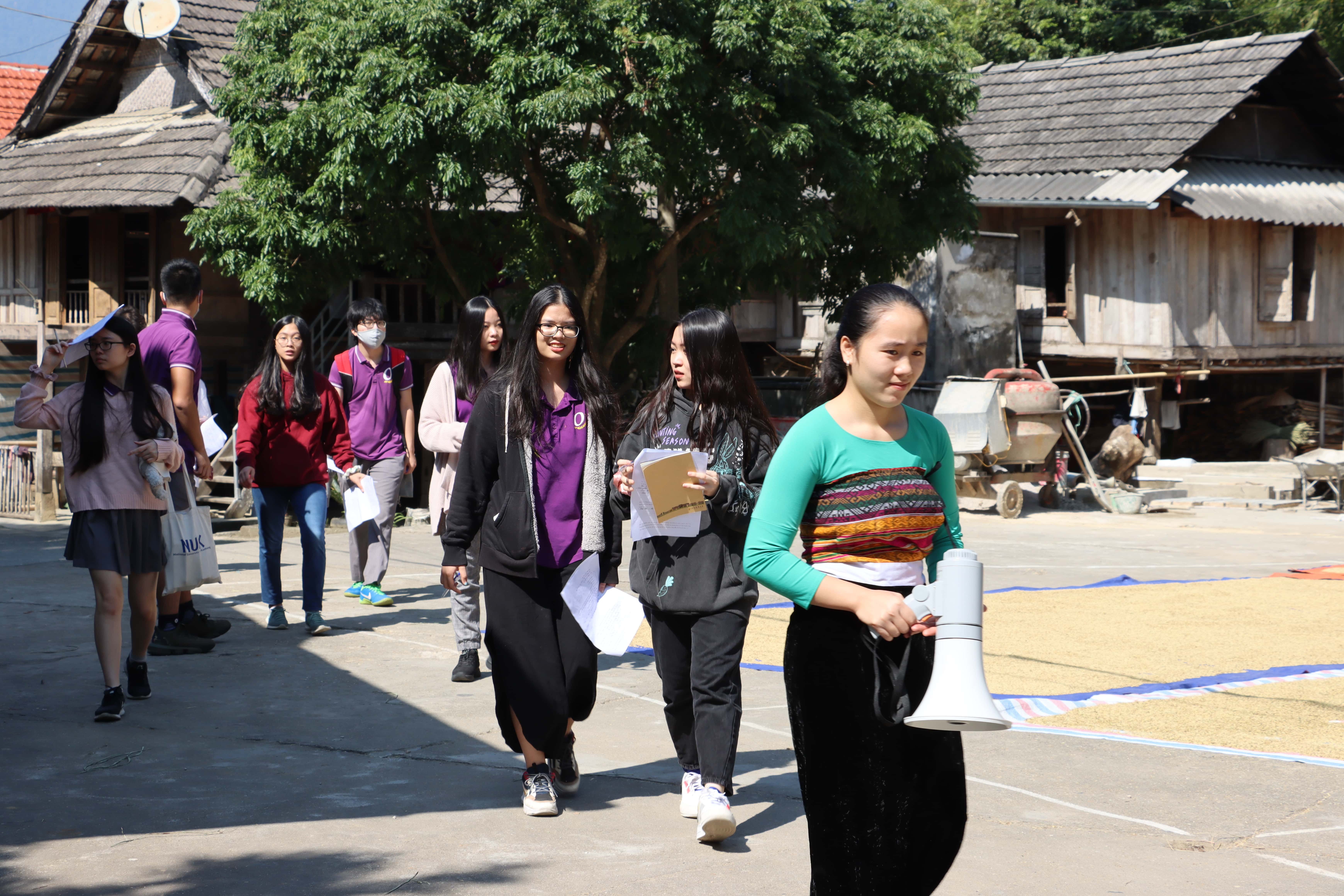
One aspect that the teachers particularly focus on during these experiential projects is how to change the conception and perspective of students in many fields, including minority ethnic groups in Vietnam. The notion about this topic is still much limited, leading to misled judgement or prejudice. This field trip helps expand their horizon, push them to learn more the significant contribution of minority ethnic groups to the preservation of local cultures, and encourage them to impart the knowledge to mass public. These ethnic people and their cultures make up of the diversity in Vietnamese identity.
Back to the interdisciplinary model and its value to 11th graders, it is not a new model at Olympia. The integration of four subjects into one project is a major and critical model. It is interesting that besides Social Science subjects, Informatics is also integrated into the project “Who am I in national identity”.
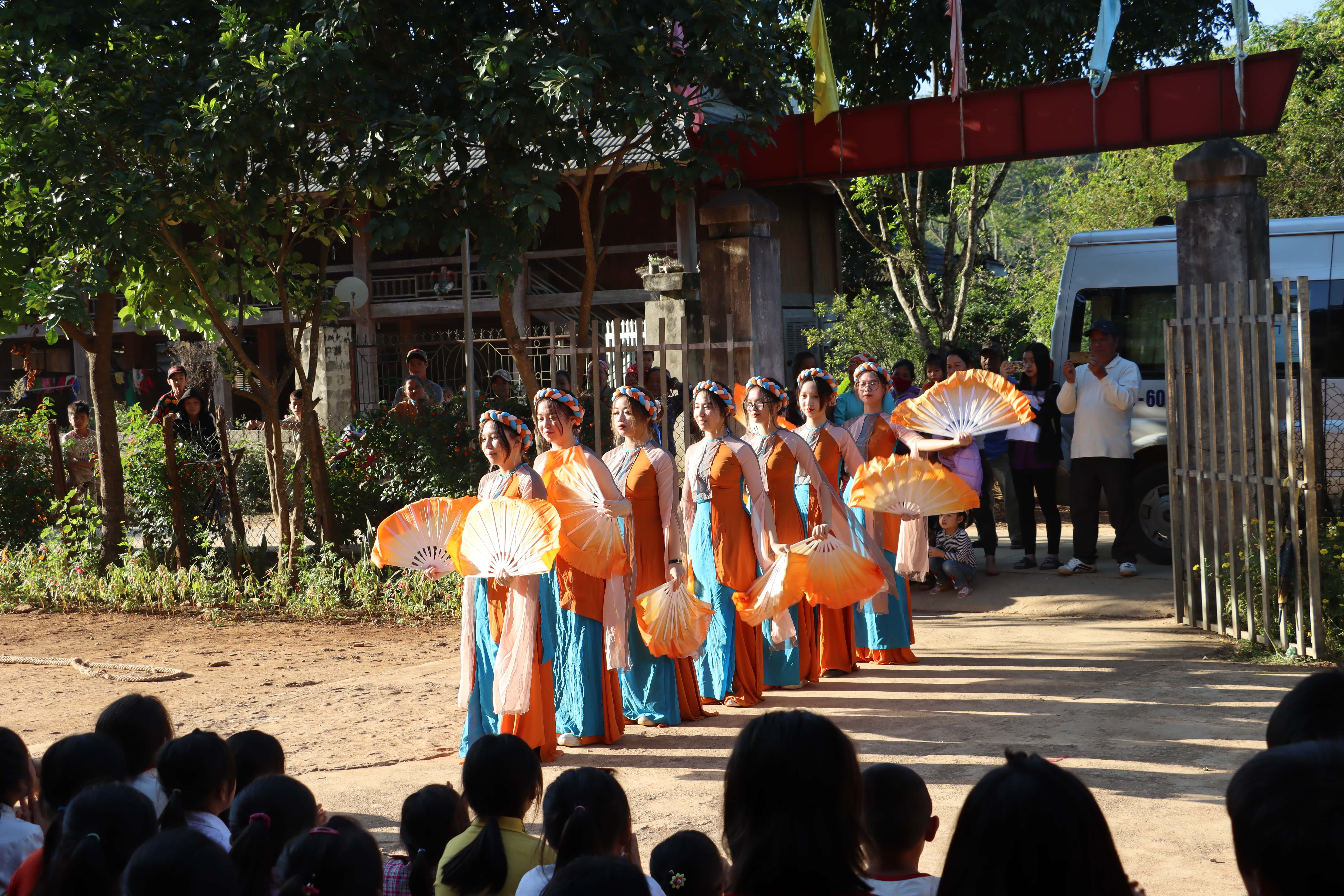
In Literature, students learn the poet “Farewell to my beloved” of the Thai people. In Music, they learn about folk performance by using local music instruments and melodies. In Art, they learn about fine arts in the people’s agricultural tools and daily appliances, outfits, and housing architecture, which are aesthetically unique and charming. In Informatics, they learn how to adopt development and computer application into designing, archiving and advertising local products to the young generation in Vietnam and in the world.
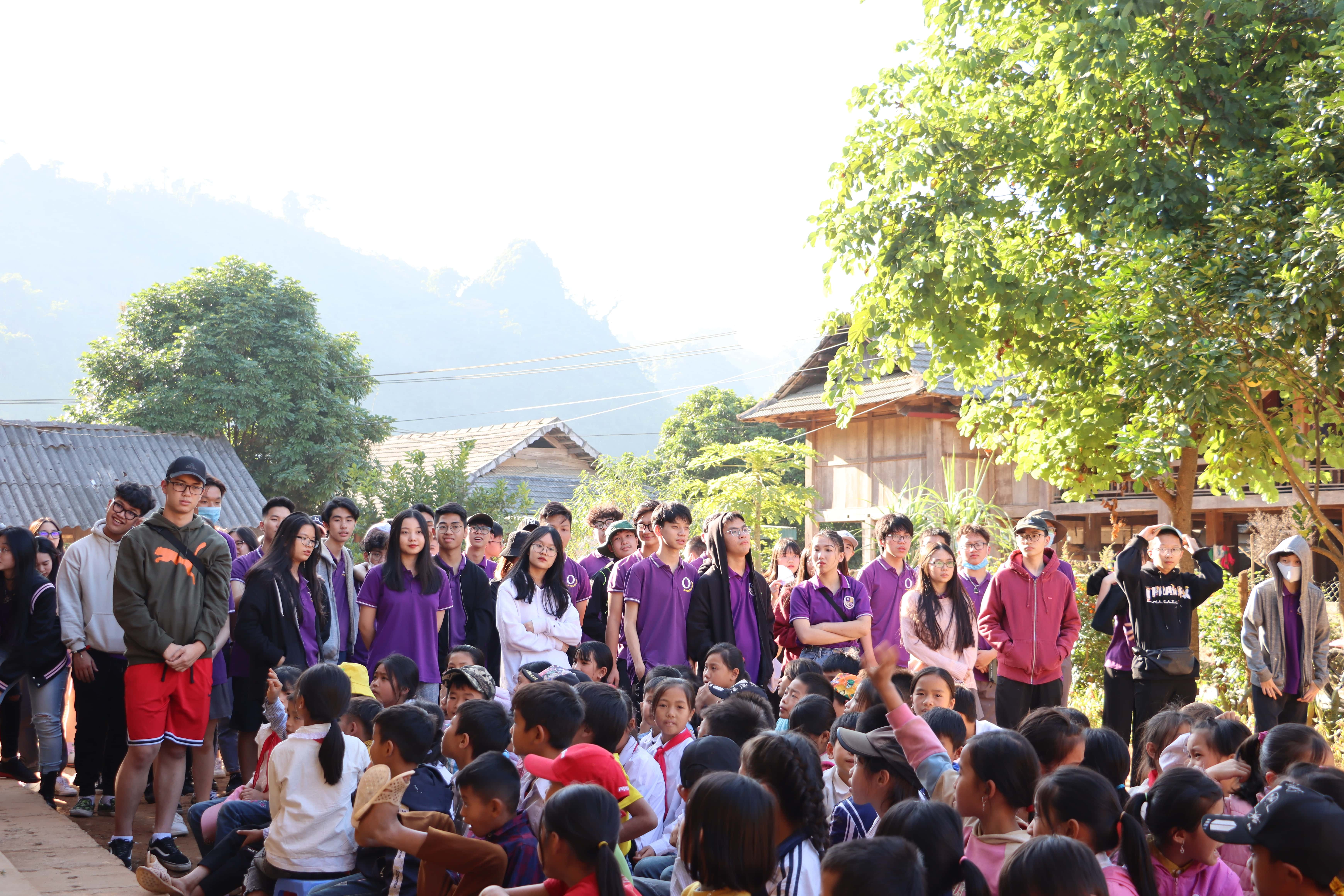
“Interdisciplinary model coupled with experiential learning, or experience Thai people life in this project, go beyond the classroom and textbooks to help students improve their mindset, competence, and skills. These lessons are not just about theories or one particular field but a window into multiple fields including marketing, tourism, music, etc.
Above all, students directly engaged in history, geography, cultural spaces and technology platforms to quest for input, and more importantly produce personal/group creative and quality products, which contain personal, community and national identity. Based on that, students know who they are, where they belong, who they will become and where they will go in the future,”,Minh Thuy emphasized on the significance of the project. The project not only broadens the students’ horizon but also lets them go to their inner world to answer the very existential questions.
Valuable first-hand experience
Besides interdisciplinary model, the field trips bring about valuable opportunities to learn and implement social projects through which the students’ general competence and specialized competence are enhanced.
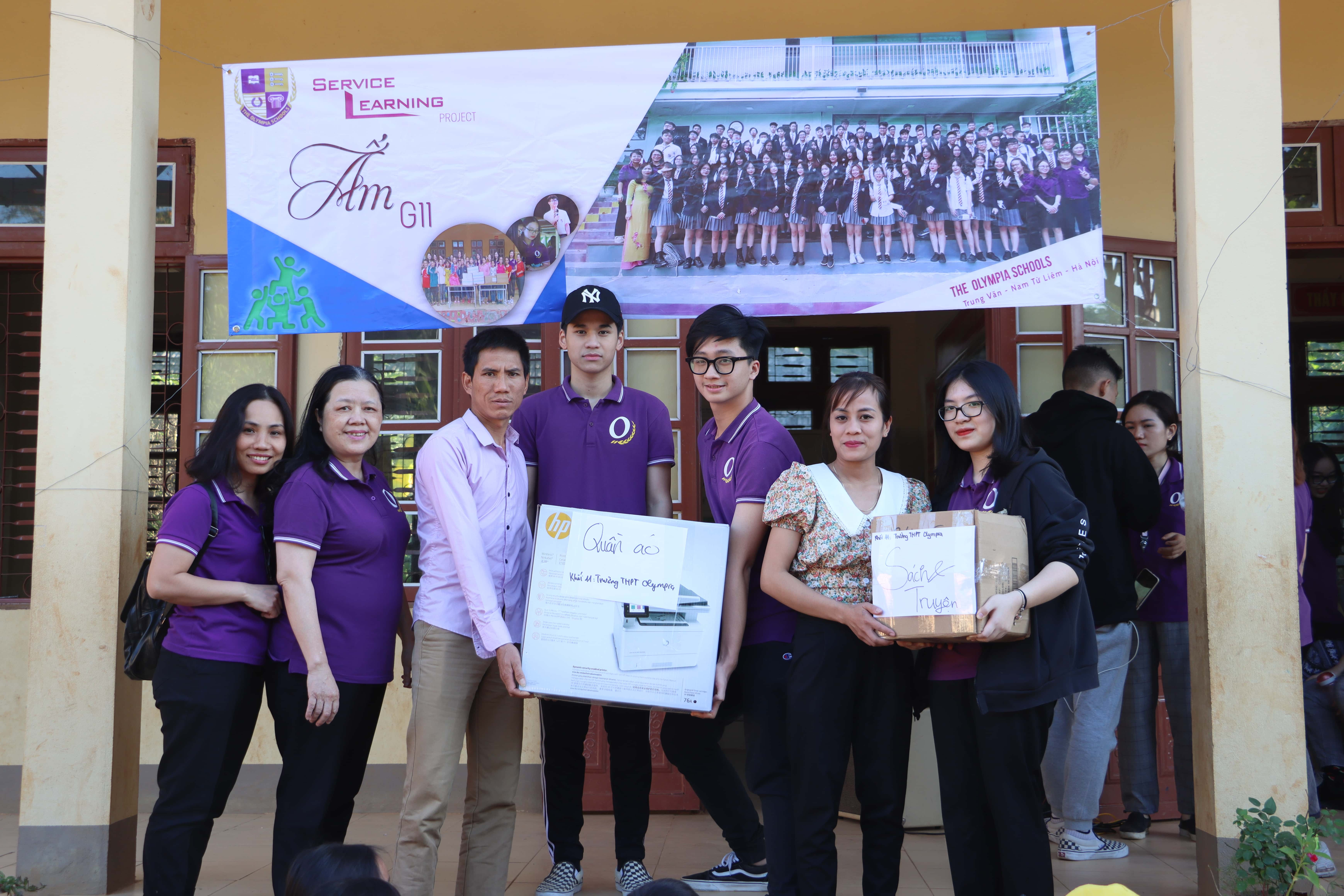
As part of the project, the 11th graders explored the Thai cultural space museum. The museum displayed a lot of relics and artifacts about Thai life. Then, students conducted service learning projects such as music and charity event at Tan Lap primary school. They spent the evening enjoying music, setting camping fire, and reflecting about the day.
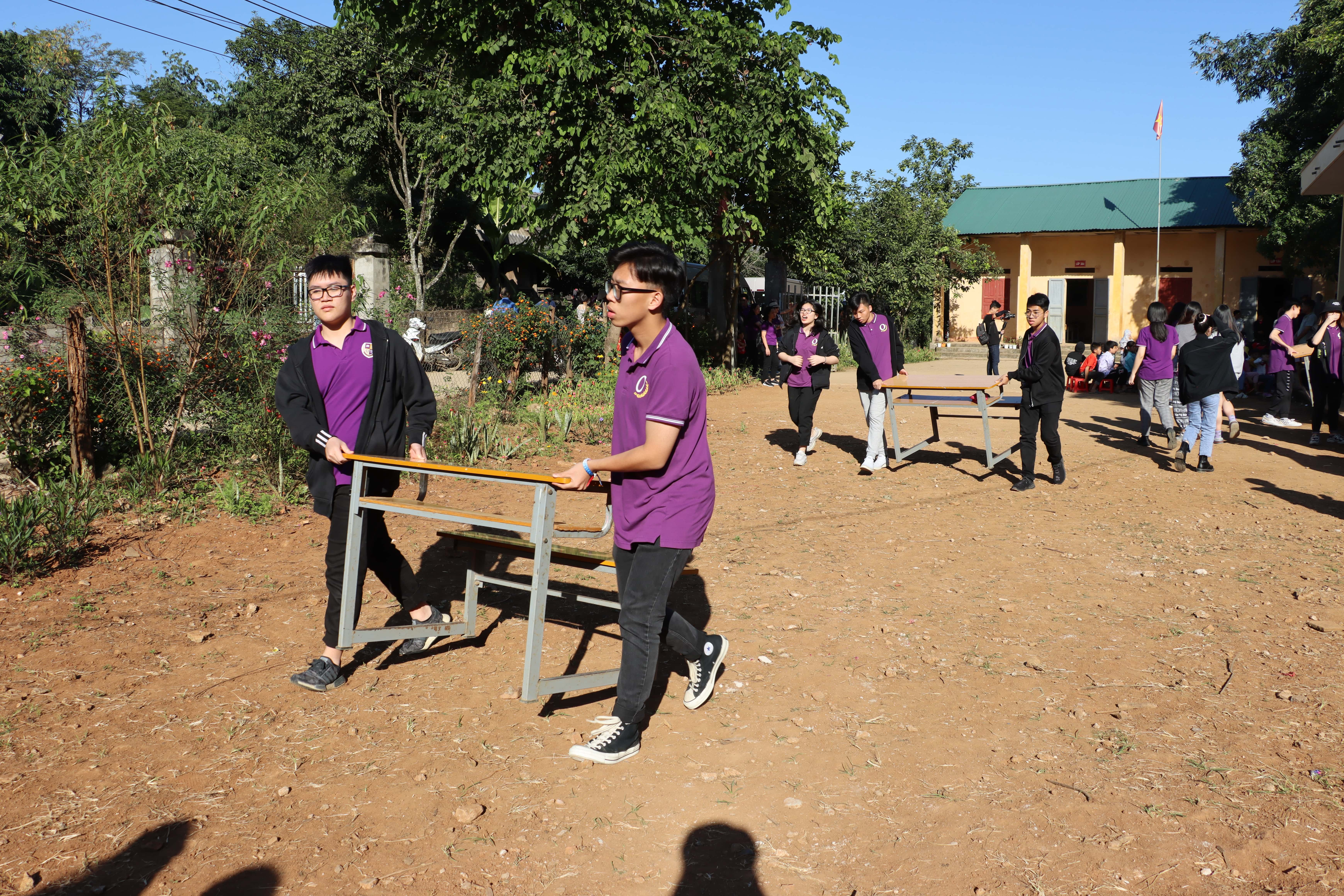
Within two days, they also practiced knitting, tried on Thai outfit, learned about tea production and harvest – a specialty of Moc Chau under expert guidance. This is the very first-hand experience to most of the students. These activities were designed by Olympian teachers to optimize learner experience on various aspects of Thai cultures.
“Our young generation is very quick on adapting to foreign cultures across the world but will maintain the Vietnamese values and understand that we are responsible for the preservation of national identity. These insights help us confidently introduce about Vietnam, a diverse and impressive Vietnam, to the world,” shared a 11th grader.
We have learned about one among 54 ethnic groups of Vietnam thanks to this project. Each ethnic group culture has been recorded in the historical and literature papers to make up a unique Vietnam.”
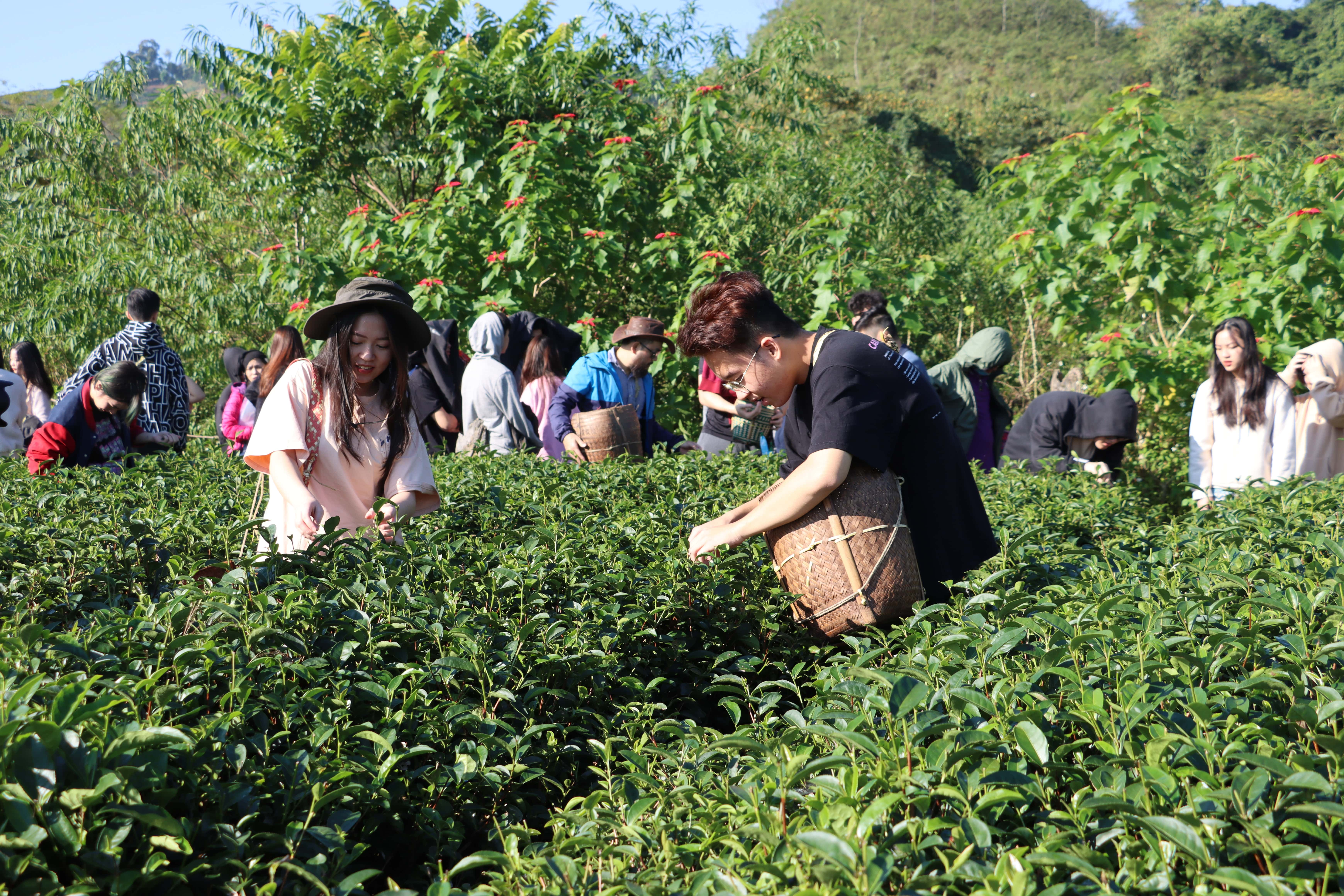
The two-day field trip came to and end but the knowledge horizon has opened up. Thuy, Khanh Linh, and other teachers, who organized this project, could not be happier about the outcomes of the project.
“The project has significantly changed the students’ mindset. Some students were not used to sleeping on stilt house or taking part in outdoors activities. But by the end of the trip, they all look forward to a longer trip with more chances to explore the ethnic cultures,” Thuy said.
That is enough to make a success out of this learning project











